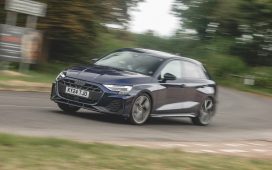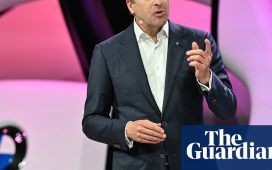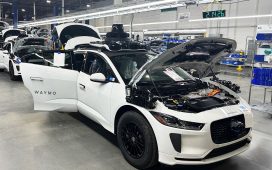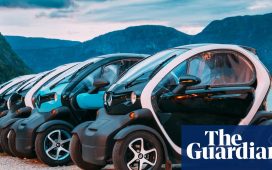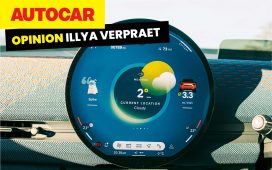Britain’s largest carmaker, Jaguar Land Rover, has reported record revenues amid continued strong demand for its Range Rover and Defender models, but said it would only hit UK electric car targets via a series of loopholes.
JLR, owned by India’s Tata, revealed on Thursday it had made revenues of £13.8bn between April and September, up 42% on the previous year. In the latest quarter revenues hit £6.9bn, while profit before tax rose year on year to £442m.
It also reported its fourth consecutive quarter of profit for the first time in six years, after a difficult period in which it wrote down the value of big investments in China and then had to cope with the coronavirus pandemic and a global shortage of computer chips.
The company still has an order backlog of 165,000 cars but that was a marked reduction from its peak of more than 200,000. It said that demand for its Range Rover SUV, the smaller Range Rover Sport and the more rugged Defender remained strong, particularly in China.
Adrian Mardell, the manufacturer’s chief executive, said he expected revenues to hit a new record in the second half of its financial year, before an expected drop in demand from April onwards.
Initially on Thursday, Mardell said JLR would face a further hit from fines related to the UK government’s zero emissions vehicle (ZEV) mandate, which would require 22% of total UK sales next year to be electric cars. Failure to meet the target could result in fines of £15,000 for every non-electric vehicle produced over the threshold.
However, JLR later corrected Mardell’s comments, saying the company in fact expects to avoid most of the fines because of loopholes that give manufacturers leeway by making plug-in hybrid vehicles, which combine a petrol or diesel engine with a battery, and which lower carbon emissions if regularly charged by users.
The company will also be able to use overcompliance on the targets in later years to offset non-compliance in early years. JLR expects 70% of its sales will be battery electric in 2027, compared with the ZEV mandate target of 38%. JLR expects a small ZEV mandate fine related to the cars it sells in 2025 to commercial fleets, which are counted separately.
After a series of delays to its electric plans, the carmaker sells only one zero-emission vehicle, the lauded but ageing Jaguar I-Pace, and its first electric Range Rover will start deliveries towards the end of 2024. JLR was likely to offer deals on the I-Pace in 2024 to encourage more buyers, Mardell said.
after newsletter promotion
Mardell said JLR would be ready to meet the ZEV mandate on its own terms in 2025 and 2026, when it would have to hit 28% and then 33% electric sales in the UK. JLR is spending £15bn on switching gradually to electric vehicles.
Tata will provide the batteries for JLR’s belated transition to electric cars from a £4bn factory to be built in the UK. Mardell said JLR would start receiving those British batteries towards the end of 2026.

